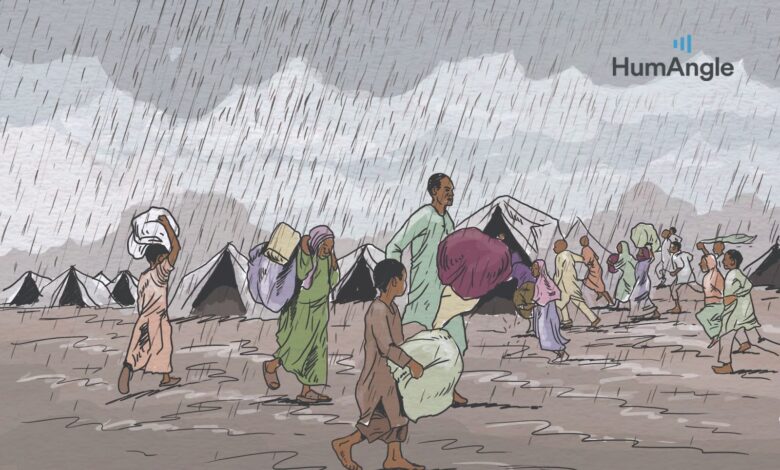Armed Conflict, Climate Change Push Global Humanitarian Needs To Record High
Conflict and climate change remain the driving forces behind displacement as the number of internally displaced persons reach 71.1 million across the globe.

According to the UN Office for the Coordination of Humanitarian Affairs, nearly 300 million people will need humanitarian assistance due to conflicts, climate change, and other drivers by next year.
This is a sharp increase from the initial 230 million people recorded last year. About half of those in need of these supports are in Africa.
In 2023 alone, the ongoing conflict in Sudan and the Israel-Hamas war caused a dramatic spike in civilian deaths and displaced even more. In five weeks, it says, the number of civilians killed in the Occupied Palestinian Territory was as much as about 60 per cent of the total global number of civilians killed last year.
Climate disasters also left a trail of devastation along its path, surging displacement by 45 per cent in a single year. For example, about 2.3 million people were displaced in the Horn of Africa as a result of the severe drought that hit the region.
As a result, in the coming year, 74.1 million people will need humanitarian support in East and Southern Africa. According to the annual global humanitarian report, the conflict in Sudan accounts for almost 40 per cent of this figure. Since the conflict erupted in April, over 9,000 civilians and another 5.4 million have been displaced from their homes. The UN says humanitarian assistance in the country has risen exponentially.
“Sudan is experiencing a precipitous rise in needs from 15.8 million people in 2023, to a staggering 30 million people in 2024,” the report says.
In West and Central Africa, about 65.1 million people are in need. This is largely exacerbated by the long-running crisis in the DR Congo and violent extremism in the Sahel, especially Burkina Faso and Mali.
In Nigeria, a total of 2,375,846 Internally Displaced Persons (IDPs) are currently displaced by jihadist groups in the country’s North East. The situation is not different in other parts of the country, especially in the North West and parts of the North-central where terrorists hold sway.
With about 71.1 million internally displaced persons across the globe, internal displacement reached its highest peak at the end of 2022, representing a 20 per cent increase in a year. The number of refugees is at a record high of 36.4 million, with over half leaving countries like Afghanistan, Syria, and Ukraine.
Conflict and climate crisis remain the main factors driving displacement across the globe.
Support Our Journalism
There are millions of ordinary people affected by conflict in Africa whose stories are missing in the mainstream media. HumAngle is determined to tell those challenging and under-reported stories, hoping that the people impacted by these conflicts will find the safety and security they deserve.
To ensure that we continue to provide public service coverage, we have a small favour to ask you. We want you to be part of our journalistic endeavour by contributing a token to us.
Your donation will further promote a robust, free, and independent media.
Donate HereStay Closer To The Stories That Matter




